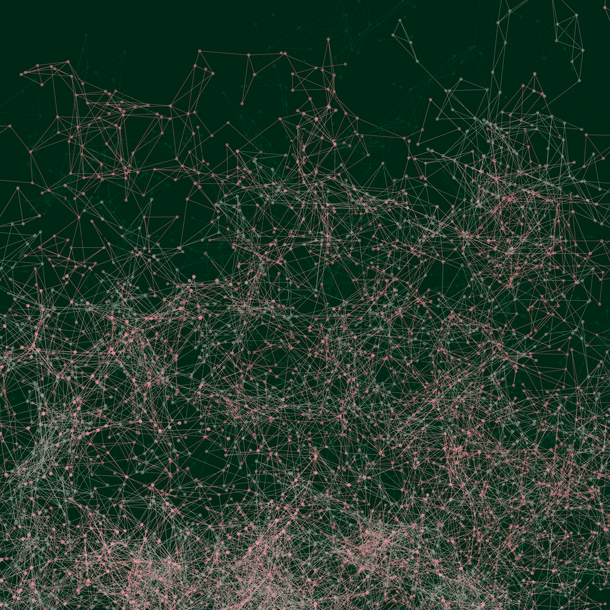Knowledge evolution, exploration and publication – novel ways for literature assessment in ocean science
Doctoral Researcher:
Supervisors:
- Dr. Stefan Sommer, GEOMAR Helmholtz Centre for Ocean Research Kiel, Marine Biogeochemistry, ssommer@geomar.de
- Prof. Dr. Isabella Peters, Kiel University, Web Science, ipe@informatik.uni-kiel.de
- Associated Partner: Prof. Dr. Wilhelm Hasselbring, Kiel University, Software Engineering Group
Location: Kiel
Disciplines: computer science, ocean science, library and information science, bibliometrics, science and technology studies, sociology of science
Keywords: knowledge exploration, assessment of literature, machine learning, text mining, scientific publications, scholarly communication, relevance assessment, bibliometrics
Motivation: Scientific output is enormously increasing. Between 2010 and 2014 more than 370,000 manuscripts were published and more than 2 million articles were cited in ocean science alone (Global Ocean Science Report, 2017). Consequently, it becomes increasingly difficult to keep track with the state of the art in the respective research area whilst not neglecting developments and discoveries, which were made in the past. Moreover, the grand challenges of today’s society can only be solved in a transdisciplinary manner, requesting means that allow retrieval, exploration and combination of knowledge stemming from the various disciplines concerned. Simultaneously, the sheer amount of data available and its heterogeneity, i.e. various forms of scientific outputs from research data, blog posts, and newspaper articles to scientific articles, opens avenues for research on the potential of big scholarly data and its automatic processing.
Aim: The challenge is to develop a novel and timely exploration software enabling the comprehensive and contextual scientific literature search, the assessment of its relevance as well as the combination of literature stemming from various fields. For the latter aspect similarities between research fields have to be identified, e.g. via keyword matching or bibliometric methods (Kraker et al., 2015), even if different publication types (e.g. data sets, scientific articles, blog post) and specific vocabularies have been used in each discipline to present research results or, respectively, describe the same concept. In order to provide fast orientation for the researcher and to aid relevance judgements the evolution and perception of knowledge in the respective scientific field needs to be “mapped” out far beyond standard keyword-based approaches and impact and citation metrics (e.g. via altmetrics; Priem et al., 2010). To aid relevance judgements it shall be visualized when and to what extend scientific results contributed to a broadening, i.e. generalization, of knowledge or whether significant novel advances were made further pushing the frontiers of knowledge probably leading to new research directions. The extent to which major results stimulated other studies also across disciplines will be resolved as well as studies, which were less influential.
Enabling exploration of literature is the key of this project. Suitable visualization techniques are deemed important in this regard. A focus is laid on interactive visualization techniques that rearrange information objects depending on the users’ search paths and that are able to highlight different aspects of the literature exploration such as (i) major results of studies, (ii) the thematic relationship between studies, (iii) geographic region where the study was conducted, (iv) the methods used, (v) how research was perceived (as reflected by citations, for example), or (vi) co-author analysis. This application should further allow for fast contextual data mining and provide links to different data bases, such as social media platforms (e.g. Mendeley) to allow for derivation of altmetrics.
Objectives: (i) Develop, implement, and evaluate exploration software for contextual literature search in ocean science, (ii) software should tap on existing data bases, such as Mendeley, to enrich information objects with contextual and perception data; iii) develop, implement and evaluate a method to group similar topics stemming from different disciplines, iv) develop, implement, and evaluate an approach that extracts and visualizes different qualities of scientific results (e.g. significance of scientific findings in the field) by considering the different types of research outputs, such as scientific articles, data sets or blog posts.
References:
- Global Ocean Science Report: The Current Status of Ocean Science around the World – Executive Summary (IOC Policy Series 2017-1); IOC/POL/2017/1
- Kraker, P., Schlögl, C., Jack, K., and Lindstaedt, S. (2015). Visualization of Co-Readership Patterns from an Online Reference Management System. In: Journal of Informetrics 9.1, pp. 169–182. DOI: 10.1016/j.joi.2014.12.003.
- Priem, J., Taraborelli, D., Groth, P., & Neylon, C. (2010). Altmetrics: A manifesto. URL_ altmetrics.org/manifesto/








